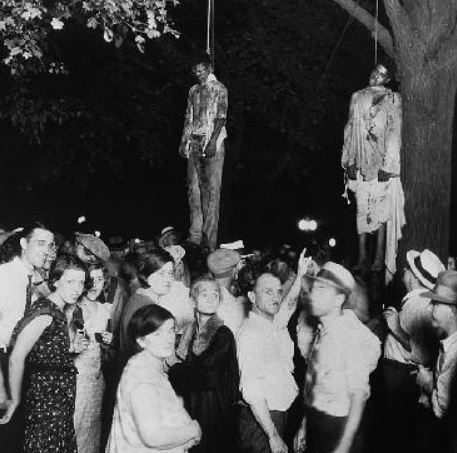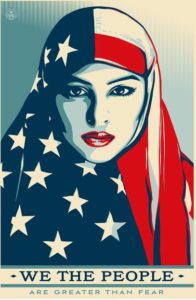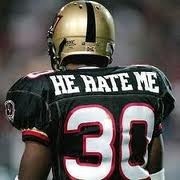I lived as a teenager and young adult during the 1960s in an America where abortion was illegal in every state. At least 10% of women and girls got abortions anyway, maybe more.
Who knows? The technology of abortion is not complicated; people performed them for pregnant girls and women, usually for small fees.
Birth control was something new. Girls and young women, most of them, did not yet understand how it all worked. They suffered shame and ignorance. Many got “into trouble” who never imagined it could happen to them — learning about their pregnancies, some of them, long after their boyfriends had moved on.
In junior high — it was 1961 — I was thirteen. In those days, Thursday was Queers Day. Anyone who wore green was considered queer and could be harassed — no mercy.
God help the wearer of green on Queers Day. I had no idea what being queer meant. I knew it was bad. Queer folk went to prison, some of them. They couldn’t get security clearances in the military, not in the Navy, anyway.
Dad told me, so I knew it was true.
Blacks couldn’t vote until 1964. I was 16. Until the assassination of civil rights leader Martin Luther King Jr. in 1968, businesses like hotels, drugstores, theaters, and realtors could choose to not sell their products to anyone they hated — usually Negroes.
Yes, a few companies sold to black people but not many. After Martin was murdered, 125 cities erupted into racial violence. Some say more. Congress, fearing the unraveling of America, passed the Fair Housing Act and other legislation to make racial discrimination by business owners illegal.
I never saw a black face on television until 1965. I was 17. Black musicians and singers entertained on the radio and in night clubs in most large cities. On the radio it was not possible to know always if the singer was black.
Otis Redding released a hit song during Christmas of 1964. I loved it. When Otis died in 1967, I did not know what he looked like. I’d never seen a picture of one of the most popular American singers of all time.
When I graduated from college, one thing I did know for sure was what all the many brands of cigarettes looked like. I knew Marlboro tastes good like a cigarette should.
The jingle burned my brain. I will never be rid of it. TV forced hundreds-of-millions in the USA and around the world to watch countless thousands of cigarette commercials.
Viewers back then couldn’t pause or mute programs. Remotes didn’t exist.
Of course, I smoked. Who can resist sophisticated advertising?
I can’t.
Back in the day, the one and only control anyone had over what they watched was the on-off switch. The “off” switch meant choosing to be lonely, sometimes.
On television news, I watched the USA fight genocidal war in Vietnam. I signed up to serve as an infantry officer, no less. I learned that war is bad — much worse than I imagined.
I protested, and the army stripped me of my pending commission. I was arrested at an antiwar demonstration and spent hours in jail before some good lawyers set me free.
Historians have argued that sometime during 1952 (I was four) the USA dropped anthrax munitions on Chinese troops stationed in northern Korea. The act of bioterrorism was justified by the idea that the alternative was nuclear weapons, which everyone believed involved more risk.
When doing research, I learned that everyone in the world seemed to know about the anthrax attack except Americans.
In 1976, a “rogue” CIA employee blew up a commercial airplane carrying, among other folks, the Cuban Olympic fencing team. The bombing was the world’s first act of aviation terrorism — a form of warfare our enemies would one day turn against us.
A “rogue” CIA asset named Oswald assassinated President Kennedy in 1963. I was in high school. Back in the day, rogue actors seemed to show up from time to time in places where unusually catastrophic events erupted.
Wikipedia reports: According to a 1963 FBI memo that was released to the public in 2008, [former president] Ford was in contact with the FBI throughout his time on the Warren Commission and relayed information to the deputy director, Cartha DeLoach, about the panel’s activities.
I lived in America under President Nixon, the closest thing to a Nazi ever elected to the White House. I was 26 when Congress started the impeachment process against him, but Nixon chose to resign in exchange for a pardon by his vice-president turned president, Gerald Ford.
During high school, I lived in Virginia, where white people went “coon” hunting to find and execute random black people.
I lived a half mile from the headquarters of the American Nazi Party, which was led by a retired Navy Commander.
Can things get worse?
Of course.
Government leaders lie. Many are hypocrites. It’s often not possible to know what’s true. A lot of people who wear suits and ties are haters and power-trippers.
It’s true.
Slavery was 100 years old in America when our nation established itself under a constitution in 1776 — it was 150 years old if indentured servants — who were white and European — are included. Two-thirds of whites came to America as slaves. True, they weren’t in chains, and their “contracts” expired after seven years.
Slavery is the fertile soil out of which the thorn bush of capitalism spread its vile branches of greed and exclusion. The institution of bondage makes getting rich a lot easier for those who own slaves.
Who doesn’t love the roses of capitalism? But its spines can grow long enough to wound and kill the unwary. Unlimited incomes and estate sizes turn capitalism into a predatory exercise; without limits people get hurt; democracy is devalued; economies stall; recession and depression follow.
The disadvantaged poor are as often as not sent to war by the rich and powerful to further maximize their enormous advantages. Threatening war to take the oil of Iraq is an example — an idea recently floated by President Trump.
Since the beginning of empires, every thinking person has known that greed, unchecked and unrestrained, destroys civilizations. The Bible says that the love of money is the root of every kind of evil.
It’s true.
Almost everyone in the world today lives under authoritarian governments run by men who don’t give a damn about freedom. It’s always been this way.
Even in an America with its Statue of Liberty, its Bill of Rights, its wide-open spaces and fast cars, most people find themselves trapped in jobs they hate working for rich folks who can disrupt and sometimes ruin their lives with two words: You’re fired.
To put things into perspective: unless our new president decides to arrest and execute dissenters, or drops nuclear bombs, we will get through what seems to some like a living nightmare. It is not, not really, not yet.
We’ve been down this nasty road before. It leads to upheaval, yes, but if my generation survived and prevailed, then our kids and grandkids have a chance to prevail as well.
My advice is to be smart; dignity and love demand that each person resist evil as best they can. Unfortunately, my experience is that the brave who resist lose every battle.
Who can close their eyes? The USA targeted and killed resisters in both Asia and the United States during the Vietnam debacle, to cite one example out of many.
War resisters lost every fight; every argument; every skirmish; every battle.
People still ridicule baby boomers who said no to war. Ads on TV make claim that many boomers suffer from hepatitis C. Imagine — the generation that said no to war is a leper colony according to pharma pigs, who always push imaginary cures.
Like everything else billionaires tell us, it’s bullshit. I don’t know a single person from my generation who has hepatitis C. Yes, some boomers have hepatitis C; that much has to be true; it’s simple statistics; and, yes, some voters cheated during our recent presidential election. There are always some, always on both sides, it turns out.
Anything is possible.
Everything is possible.
Powerful people can paint the people they despise in any colors they want.
Crooked Hillary.
Lying Ted.
Sleepy Joe.
Slander is not new. The 9th Commandment forbids it. No one cares. People increase their power by violating it. It’s the way power rolls.
It always will be.
It’s why Jesus said that unless graced by a miracle by God, the wealthy have as much chance of getting into heaven as a camel squeezing through the eye of a needle.
Despite the harm that billionaires do, they can’t change the reality that Martin Luther King Jr. described during his short life of suffering for the cause of freedom and equality:
The moral arc of the universe is long, but it bends toward justice.
They murdered Dr. King when he was 39. He didn’t live long, but he changed the course of civilization on Earth for as long as civilization lasts.
We, every one of us, can share Martin’s hope: non-violent resistance is not futile. Not yet. Not ever. It only seems futile when we are tired and discouraged.
Some have died to make folks free.
It’s not fair, it’s not right, but it’s true.
We have heroes.
Billy Lee












